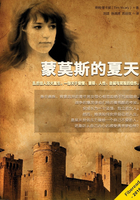The Catalans
Beyond a bare, weather-worn wall, about a hundred paces from the spot where the two friends sat looking and listening as they drank their wine, was the village of the Catalans. Long ago this mysterious colony quitted Spain, and settled on the tongue of land on which it is to this day. Whence it came no one knew, and it spoke an unknown tongue. One of its chiefs, who understood Provencal, begged the commune of Marseilles to give them this bare and barren promontory, where, like the sailors of old, they had run their boats ashore. The request was granted; and three months afterwards, around the twelve or fifteen small vessels which had brought these gypsies of the sea, a small village sprang up. This village, constructed in a singular and picturesque manner, half Moorish, half Spanish, still remains, and is inhabited by descendants of the first comers, who speak the language of their fathers. For three or four centuries they have remained upon this small promontory, on which they had settled like a flight of seabirds, without mixing with the Marseillaise population, intermarrying, and preserving their original customs and the costume of their mother-country as they have preserved its language.
Our readers will follow us along the only street of this little village, and enter with us one of the houses, which is sunburned to the beautiful dead-leaf color peculiar to the buildings of the country, and within coated with whitewash, like a Spanish posada. A young and beautiful girl, with hair as black as jet, her eyes as velvety as the gazelle's, was leaning with her back against the wainscot, rubbing in her slender delicately moulded fingers a bunch of heath blossoms, the flowers of which she was picking off and strewing on the floor; her arms, bare to the elbow, brown, and modelled after those of the Arlesian Venus, moved with a kind of restless impatience, and she tapped the earth with her arched and supple foot, so as to display the pure and full shape of her well-turned leg, in its red cotton, gray and blue clocked, stocking. At three paces from her, seated in a chair which he balanced on two legs, leaning his elbow on an old worm-eaten table, was a tall young man of twenty, or two-and-twenty, who was looking at her with an air in which vexation and uneasiness were mingled. He questioned her with his eyes, but the firm and steady gaze of the young girl controlled his look.
"You see, Mercédès," said the young man, "here is Easter come round again; tell me, is this the moment for a wedding?"
"I have answered you a hundred times, Fernand, and really you must be very stupid to ask me again."
"Well, repeat it,—repeat it, I beg of you, that I may at last believe it! Tell me for the hundredth time that you refuse my love, which had your mother's sanction. Make me understand once for all that you are trifling with my happiness, that my life or death are nothing to you. Ah, to have dreamed for ten years of being your husband, Mercédès, and to lose that hope, which was the only stay of my existence!"
"At least it was not I who ever encouraged you in that hope, Fernand," replied Mercédès; "you cannot reproach me with the slightest coquetry. I have always said to you,‘I love you as a brother; but do not ask from me more than sisterly affection, for my heart is another's.' Is not this true, Fernand?"
"Yes, that is very true, Mercédès," replied the young man, "Yes, you have been cruelly frank with me; but do you forget that it is among the Catalans a sacred law to intermarry?"
"You mistake, Fernand; it is not a law, but merely a custom, and, I pray of you, do not cite this custom in your favor. You are included in the conscription, Fernand, and are only at liberty on sufferance, liable at any moment to be called upon to take up arms. Once a soldier, what would you do with me, a poor orphan, forlorn, without fortune, with nothing but a half-ruined hut and a few ragged nets, the miserable inheritance left by my father to my mother, and by my mother to me? She has been dead a year, and you know, Fernand, I have subsisted almost entirely on public charity. Sometimes you pretend I am useful to you, and that is an excuse to share with me the produce of your fishing, and I accept it, Fernand, because you are the son of my father's brother, because we were brought up together, and still more because it would give you so much pain if I refuse. But I feel very deeply that this fish which I go and sell, and with the produce of which I buy the flax I spin,—I feel very keenly, Fernand, that this is charity."
"And if it were, Mercédès, poor and lone as you are, you suit me as well as the daughter of the first shipowner or the richest banker of Marseilles! What do such as we desire but a good wife and careful housekeeper, and where can I look for these better than in you?"
"Fernand," answered Mercédès, shaking her head, "a woman becomes a bad manager, and who shall say she will remain an honest woman, when she loves another man better than her husband? Rest content with my friendship, for I say once more that is all I can promise, and I will promise no more than I can bestow."
"I understand," replied Fernand, "you can endure your own wretchedness patiently, but you are afraid to share mine. Well, Mercédès, beloved by you, I would tempt fortune; you would bring me good luck, and I should become rich. I could extend my occupation as a fisherman, might get a place as clerk in a warehouse, and become in time a dealer myself."
"You could do no such thing, Fernand; you are a soldier, and if you remain at the Catalans it is because there is no war; so remain a fisherman, and contented with my friendship, as I cannot give you more."
"Well, I will do better, Mercédès. I will be a sailor; instead of the costume of our fathers, which you despise, I will wear a varnished hat, a striped shirt, and a blue jacket, with an anchor on the buttons. Would not that dress please you?"
"What do you mean?" asked Mercédès, with an angry glance,—"what do you mean? I do not understand you?"
"I mean, Mercédès, that you are thus harsh and cruel with me, because you are expecting some one who is thus attired; but perhaps he whom you await is inconstant, or if he is not, the sea is so to him."
"Fernand," cried Mercédès, "I believed you were good-hearted, and I was mistaken! Fernand, you are wicked to call to your aid jealousy and the anger of God! Yes, I will not deny it, I do await, and I do love him of whom you speak; and, if he does not return, instead of accusing him of the inconstancy which you insinuate, I will tell you that he died loving me and me only." The young girl made a gesture of rage. "I understand you, Fernand; you would be revenged on him because I do not love you; you would cross your Catalan knife with his dirk. What end would that answer? To lose you my friendship if he were conquered, and see that friendship changed into hate if you were victor. Believe me, to seek a quarrel with a man is a bad method of pleasing the woman who loves that man. No, Fernand, you will not thus give way to evil thoughts. Unable to have me for your wife, you will content yourself with having me for your friend and sister; and besides," she added, her eyes troubled and moistened with tears, "wait, wait, Fernand; you said just now that the sea was treacherous, and he has been gone four months, and during these four months there have been some terrible storms."
Fernand made no reply, nor did he attempt to check the tears which flowed down the cheeks of Mercédès, although for each of these tears he would have shed his heart's blood; but these tears flowed for another. He arose, paced a while up and down the hut, and then, suddenly stopping before Mercédès, with his eyes glowing and his hands clinched,—"Say, Mercédès," he said, "once for all, is this your final determination?"
"I love Edmond Dantès," the young girl calmly replied, "and none but Edmond shall ever be my husband."
"And you will always love him?"
"As long as I live."
Fernand let fall his head like a defeated man, heaved a sigh that was like a groan, and then suddenly looking her full in the face, with clinched teeth and expanded nostrils, said,—"But if he is dead"—
"If he is dead, I shall die too."
"If he has forgotten you"—
"Mercédès!" called a joyous voice from without,—"Mercédès!"
"Ah," exclaimed the young girl, blushing with delight, and fairly leaping in excess of love, "you see he has not forgotten me, for here he is!" And rushing towards the door, she opened it, saying, "Here, Edmond, here I am!"
Fernand, pale and trembling, drew back, like a traveller at the sight of a serpent, and fell into a chair beside him. Edmond and Mercédès were clasped in each other's arms. The burning Marseilles sun, which shot into the room through the open door, covered them with a flood of light. At first they saw nothing around them. Their intense happiness isolated them from all the rest of the world, and they only spoke in broken words, which are the tokens of a joy so extreme that they seem rather the expression of sorrow. Suddenly Edmond saw the gloomy, pale, and threatening countenance of Fernand, as it was defined in the shadow. By a movement for which he could scarcely account to himself, the young Catalan placed his hand on the knife at his belt.
"Ah, your pardon," said Dantès, frowning in his turn; "I did not perceive that there were three of us." Then, turning to Mercédès, he inquired, "Who is this gentleman?"
"One who will be your best friend, Dantès, for he is my friend, my cousin, my brother; it is Fernand—the man whom, after you, Edmond, I love the best in the world. Do you not remember him?"
"Yes!" said Dantès, and without relinquishing Mercédès hand clasped in one of his own, he extended the other to the Catalan with a cordial air. But Fernand, instead of responding to this amiable gesture, remained mute and trembling. Edmond then cast his eyes scrutinizingly at the agitated and embarrassed Mercédès, and then again on the gloomy and menacing Fernand. This look told him all, and his anger waxed hot.
"I did not know, when I came with such haste to you, that I was to meet an enemy here."
"An enemy!" cried Mercédès, with an angry look at her cousin. "An enemy in my house, do you say, Edmond! If I believed that, I would place my arm under yours and go with you to Marseilles, leaving the house to return to it no more."
Fernand's eye darted lightning. "And should any misfortune occur to you, dear Edmond," she continued with the same calmness which proved to Fernand that the young girl had read the very innermost depths of his sinister thought, "if misfortune should occur to you, I would ascend the highest point of the Cape de Morgion and cast myself headlong from it."
Fernand became deadly pale. "But you are deceived, Edmond," she continued. "You have no enemy here—there is no one but Fernand, my brother, who will grasp your hand as a devoted friend."
And at these words the young girl fixed her imperious look on the Catalan, who, as if fascinated by it, came slowly towards Edmond, and offered him his hand. His hatred, like a powerless though furious wave, was broken against the strong ascendancy which Mercédès exercised over him. Scarcely, however, had he touched Edmond's hand than he felt he had done all he could do, and rushed hastily out of the house.
"Oh," he exclaimed, running furiously and tearing his hair—"Oh, who will deliver me from this man? Wretched—wretched that I am!"
"Hallo, Catalan! Hallo, Fernand! where are you running to?" exclaimed a voice.
The young man stopped suddenly, looked around him, and perceived Caderousse sitting at table with Danglars, under an arbor.
"Well", said Caderousse, "why don't you come? Are you really in such a hurry that you have no time to pass the time of day with your friends?"
"Particularly when they have still a full bottle before them," added Danglars. Fernand looked at them both with a stupefied air, but did not say a word.
"He seems besotted," said Danglars, pushing Caderousse with his knee. "Are we mistaken, and is Dantès triumphant in spite of all we have believed?"
"Why, we must inquire into that," was Caderousse's reply; and turning towards the young man, said, "Well, Catalan, can't you make up your mind?"
Fernand wiped away the perspiration steaming from his brow, and slowly entered the arbor, whose shade seemed to restore somewhat of calmness to his senses, and whose coolness somewhat of refreshment to his exhausted body.
"Good-day," said he. "You called me, didn't you?" And he fell, rather than sat down, on one of the seats which surrounded the table.
"I called you because you were running like a madman, and I was afraid you would throw yourself into the sea," said Caderousse, laughing. "Why, when a man has friends, they are not only to offer him a glass of wine, but, moreover, to prevent his swallowing three or four pints of water unnecessarily!"
Fernand gave a groan, which resembled a sob, and dropped his head into his hands, his elbows leaning on the table.
"Well, Fernand, I must say," said Caderousse, beginning the conversation, with that brutality of the common people in which curiosity destroys all diplomacy, "you look uncommonly like a rejected lover;" and he burst into a hoarse laugh.
"Bah!" said Danglars, "a lad of his make was not born to be unhappy in love. You are laughing at him, Caderousse."
"No," he replied, "only hark how he sighs! Come, come, Fernand," said Caderousse, "hold up your head, and answer us. It's not polite not to reply to friends who ask news of your health."
"My health is well enough," said Fernand, clinching his hands without raising his head.
"Ah, you see, Danglars," said Caderousse, winking at his friend, "this is how it is; Fernand, whom you see here, is a good and brave Catalan, one of the best fishermen in Marseilles, and he is in love with a very fine girl, named Mercédès; but it appears, unfortunately, that the fine girl is in love with the mate of the Pharaon; and as the Pharaon arrived to-day—why, you understand!"
"No; I do not understand," said Danglars.
"Poor Fernand has been dismissed," continued Caderousse.
"Well, and what then?" said Fernand, lifting up his head, and looking at Caderousse like a man who looks for some one on whom to vent his anger; "Mercédès is not accountable to any person, is she? Is she not free to love whomsoever she will?"
"Oh, if you take it in that sense," said Caderousse, "it is another thing. But I thought you were a Catalan, and they told me the Catalans were not men to allow themselves to be supplanted by a rival. It was even told me that Fernand, especially, was terrible in his vengeance."
Fernand smiled piteously. "A lover is never terrible," he said.
"Poor fellow!" remarked Danglars, affecting to pity the young man from the bottom of his heart. "Why, you see, he did not expect to see Dantès return so suddenly—he thought he was dead, perhaps; or perchance faithless! These things always come on us more severely when they come suddenly."
"Ah, ma foi, under any circumstances," said Caderousse, who drank as he spoke, and on whom the fumes of the wine began to take effect,—"under any circumstances Fernand is not the only person put out by the fortunate arrival of Dantès; is he, Danglars?"
"No, you are right—and I should say that would bring him ill-luck."
"Well, never mind," answered Caderousse, pouring out a glass of wine for Fernand, and filling his own for the eighth or ninth time, while Danglars had merely sipped his. "Never mind—in the meantime he marries Mercédès—the lovely Mercédès—at least he returns to do that."
During this time Danglars fixed his piercing glance on the young man, on whose heart Caderousse's words fell like molten lead.
"And when is the wedding to be?" he asked.
"Oh, it is not yet fixed!" murmured Fernand.
"No, but it will be," said Caderousse, "as surely as Dantès will be captain of the Pharaon—eh, Danglars?"
Danglars shuddered at this unexpected attack, and turned to Caderousse, whose countenance he scrutinized, to try and detect whether the blow was premeditated; but he read nothing but envy in a countenance already rendered brutal and stupid by drunkenness.
"Well," said he, filling the glasses, "let us drink to Captain Edmond Dantès, husband of the beautiful Catalane!"
Caderousse raised his glass to his mouth with unsteady hand, and swallowed the contents at a gulp. Fernand dashed his on the ground.
"Eh, eh, eh!" stammered Caderousse. "What do I see down there by the wall, in the direction of the Catalans? Look, Fernand, your eyes are better than mine. I believe I see double. You know wine is a deceiver; but I should say it was two lovers walking side by side, and hand in hand. Heaven forgive me, they do not know that we can see them, and they are actually embracing!"
Danglars did not lose one pang that Fernand endured.
"Do you know them, Fernand?" he said.
"Yes," was the reply, in a low voice. "It is Edmond and Mercédès!"
"Ah, see there, now!" said Caderousse; "and I did not recognize them! Hallo, Dantès! hello, lovely damsel! Come this way, and let us know when the wedding is to be, for Fernand here is so obstinate he will not tell us."
"Hold your tongue, will you?" said Danglars, pretending to restrain Caderousse, who, with the tenacity of drunkards, leaned out of the arbor. "Try to stand upright, and let the lovers make love without interruption. See, look at Fernand, and follow his example; he is well-behaved!"
Fernand, probably excited beyond bearing, pricked by Danglars, as the bull is by the bandilleros, was about to rush out; for he had risen from his seat, and seemed to be collecting himself to dash headlong upon his rival, when Mercédès, smiling and graceful, lifted up her lovely head, and looked at them with her clear and bright eyes. At this Fernand recollected her threat of dying if Edmond died, and dropped again heavily on his seat. Danglars looked at the two men, one after the other, the one brutalized by liquor, the other overwhelmed with love.
"I shall get nothing from these fools," he muttered; "and I am very much afraid of being here between a drunkard and a coward. Here's an envious fellow making himself boozy on wine when he ought to be nursing his wrath, and here is a fool who sees the woman he loves stolen from under his nose and takes on like a big baby. Yet this Catalan has eyes that glisten like those of the vengeful Spaniards, Sicilians, and Calabrians, and the other has fists big enough to crush an ox at one blow. Unquestionably, Edmond's star is in the ascendant, and he will marry the splendid girl—he will be captain, too, and laugh at us all, unless"—a sinister smile passed over Danglars' lips—"unless I take a hand in the affair," he added.
"Hallo!" continued Caderousse, half-rising, and with his fist on the table, "hallo, Edmond! do you not see your friends, or are you too proud to speak to them?"
"No, my dear fellow!" replied Dantès, "I am not proud, but I am happy, and happiness blinds, I think, more than pride."
"Ah, very well, that's an explanation!" said Caderousse. "How do you do, Madame Dantès?"
Mercédès courtesied gravely, and said—"That is not my name, and in my country it bodes ill fortune, they say, to call a young girl by the name of her betrothed before he becomes her husband. So call me Mercédès, if you please."
"We must excuse our worthy neighbor, Caderousse," said Dantès, "he is so easily mistaken."
"So, then, the wedding is to take place immediately, M. Dantès," said Danglars, bowing to the young couple.
"As soon as possible, M. Danglars; to-day all preliminaries will be arranged at my father's, and tomorrow, or next day at latest, the wedding festival here at La Réserve. My friends will be there, I hope; that is to say, you are invited, M. Danglars, and you, Caderousse."
"And Fernand," said Caderousse with a chuckle; "Fernand, too, is invited!"
"My wife's brother is my brother," said Edmond; "and we, Mercédès and I, should be very sorry if he were absent at such a time."
Fernand opened his mouth to reply, but his voice died on his lips, and he could not utter a word.
"To-day the preliminaries, tomorrow or next day the ceremony! You are in a hurry, captain!"
"Danglars," said Edmond, smiling, "I will say to you as Mercédès said just now to Caderousse, ‘Do not give me a title which does not belong to me'; that may bring me bad luck."
"Your pardon," replied Danglars, "I merely said you seemed in a hurry, and we have lots of time; the Pharaon cannot be under weigh again in less than three months."
"We are always in a hurry to be happy, M. Danglars; for when we have suffered a long time, we have great difficulty in believing in good fortune. But it is not selfishness alone that makes me thus in haste; I must go to Paris."
"Ah, really?—to Paris! and will it be the first time you have ever been there, Dantès?"
"Yes."
"Have you business there?"
"Not of my own; the last commission of poor Captain Leclère; you know to what I allude, Danglars—it is sacred. Besides, I shall only take the time to go and return."
"Yes, yes, I understand," said Danglars, and then in a low tone, he added, "To Paris, no doubt to deliver the letter which the grand marshal gave him. Ah, this letter gives me an idea—a capital idea! Ah; Dantès, my friend, you are not yet registered number one on board the good ship Pharaon;" then turning towards Edmond, who was walking away, "A pleasant journey," he cried.
"Thank you," said Edmond with a friendly nod, and the two lovers continued on their way, as calm and joyous as if they were the very elect of heaven.















